Help Stop Destruction of the Free Internet Now
The recent FCC decision to “protect” the free and open Internet was long awaited by activists but it turned out to be smoke and mirrors, catering largely to service providers such as Comcast and AT&T.The recent FCC decision to “protect” the free and open Internet was long awaited by activists but it turned out to be smoke and mirrors.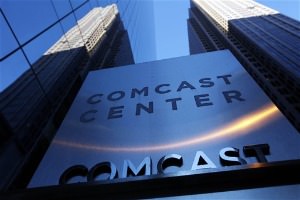
The recent Federal Communications Commission decision to “protect” net neutrality was long awaited by activists, but it turned out to be smoke and mirrors, catering largely to service providers such as Comcast and AT&T. What is needed now is a collective movement by all Internet users throughout the world, not just the relative few who have been fighting on our behalf, to stop the demise of Internet freedom before it’s too late.
While the new FCC ruling requires that telecom and telephone companies maintain transparency in their policies, it does little to regulate those policies. Chief among the dangerous practices that it will fail to adequately regulate is the imminent “pay for priority” system desired by a few dominant Internet service providers. The FCC’s impotent ruling comes just as it is about to put its seal of approval on Comcast’s merger with NBC International, one of the world’s largest content providers. The conflict of interest is glaring, yet the FCC seems to have missed it; or just maybe regulators intend their decision as a Band-Aid to try to fix the problem.
|
Call to Action: On New Year’s Day, between the hours of 2 and 3 p.m. Eastern Standard Time, go offline to express one unified voice against the creation of a pay-for-priority Internet system, the abolition of a flat fee for Internet access, and any attempt by Internet service providers to block, censor or otherwise interfere with Internet content. |
The problem is that the new ruling, even liberally interpreted, gives the FCC little or no regulatory power over these giant telecom corporations. Pursuant to the 2005 Supreme Court decision in Brand X, the FCC acquired the authority to determine whether or not such companies operate under common carriage. In Brand X, the FCC, chaired at the time by Michael Powell, maintained that the Internet was an information (rather than a telecommunication) service, hence more like a cable television station and less like your home phone. On this basis, the FCC concluded that the Internet was not subject to common carriage. This was significant because, under the common law doctrine of common carriage, the Internet pipes, like the telephone lines, would be regarded as a public rather than private set of roadways. Thus, nobody can be prevented by a telephone service provider from speaking to anyone else over the phone lines. Likewise, common carriage for the Internet meant that no one could be prevented from using the Internet cables to communicate with others.
|
What is Net Neutrality? |
Internet common carriage is presently dead in the water. The upshot is that telecommunication and telephone companies can now decide, within certain limits of fair competition, what content providers can operate on the Internet. This is tantamount to turning the Net into an extension of the mainstream media, which has the power to decide what Internet surfers can see and hear in the way of news and information.
FCC Chairman Julius Genachowski claims that his commission’s new ruling would ensure that Internet users continue to have the same experience they currently have, but this is doubtful. To provide such assurance, the FCC needs to invoke Title II common carriage regulations and reinstate common carriage regarding Internet service providers. Instead, its ruling was based on Section 706 of the Communications Act, which limply requires the FCC to “encourage the deployment on a reasonable and timely basis of advanced telecommunications capability to all Americans.”
In short, the FCC took the path of least resistance. While companies like Comcast and AT&T and their congressional cronies may now be decrying this ruling as a formidable attempt to fix what isn’t broken, it is likely that these same opponents are quietly relieved that the FCC did not flex its muscle to reinstate common carriage.
As a consequence, companies such as Comcast are in a powerful legal position to control Internet content by creating a “pay for priority” system, according to which major corporations with lots of money would be able to purchase faster connectivity or bandwidth while the rest of us would afford only poor connectivity. Giant companies would be in a position to have their voices heard loudly and clearly while the rest of the human population would have a faint voice and presence on the Net.
To add insult to injury, these companies want to treat the Internet like a utility wherein customers would no longer pay a flat access rate but would be monitored and charged for the amount of time they spend on the Internet and the amount of data they download. This would mean higher usage costs for consumers and would portend less access to information for Americans. If you couldn’t afford to pay the price of a download, you simply couldn’t get it.
All this would be bad enough. However, the plot thickens because the current gatekeepers of the Internet who would wield such power also have cooperative arrangements with government. For example, pursuant to the 2008 FISA Amendments Act, telecom companies such as Comcast and AT&T are required to help government conduct mass surveillance sweeps of all electronic traffic passing through their networks. In return, these companies enjoy full immunity from civil lawsuits filed by customers for abridgements of their Fourth Amendment right to privacy.
The implication here is that the companies that now control the Internet pipes are also working for the government. This is a formula for increased government surveillance and Internet control. Thus, while the telecoms and telephone companies currently screen electronic communications in cooperation with government, they do not appear to be regularly blocking content. However, in the absence of a clear, unequivocal, legal mandate protecting net neutrality, these corporate gatekeepers will begin to block as well as screen Internet content for political purposes.Presently, the Internet is an incredibly robust democratic forum. However, this level of democracy is inversely proportional to the amount of government-corporate control exercised over these information pipes. Americans have become accustomed to finding out things that they might not have known about had they not been permitted to freely surf the Net. When this freedom ends, a vital artery of democracy will be fatally severed.
But the time to react to this mounting exigency is not after the free architecture of the Internet is torn down. By then it would be too late. Instead, while it still exists, the free and open Internet can itself be used virally to create a mounting opposition to a pay-for-priority Internet.
So this is a plea to spread the news. The new FCC ruling is not good. The American people need to use the free Internet while it still exists to speak with one united voice. The message is that we the people of the free world will not sit idly by and allow the open and democratic Internet to be torn down. Collectively, we have power to stop this decline because these corporations can profit only if they have customers.
The will of the people must prevail and we must make our will known. There are several ways to do this. You can go to OpenInternet.gov, which is operated by the FCC, to express your dismay over the failure of the FCC’s new rules to unequivocally preempt a pay-for-priority Internet arrangement. You can write your elected representatives about it and advocate for passage of new legislation protecting net neutrality. You can organize peaceful demonstrations. And you can contact your Internet provider. In the U.S., you can contact Comcast here, AT&T here and Verizon here.
We’ll have the greatest impact if we work together.
On New Year’s Day, between the hours of 2 and 3 p.m. Eastern Standard Time, we the people should go offline to express one unified voice against the creation of a pay-for-priority Internet system, the abolition of a flat fee for Internet access, and any attempt by Internet service providers to block, censor or otherwise interfere with Internet content.
In other words, we can and should show that people throughout the free world will not tolerate any attempt by any Internet service provider to tamper with the free, open and accessible nature and design of the Internet. As gatekeepers of the Internet, these companies need a demonstration of the power of the people. Collective action by the few is insufficient. In order to succeed, there needs to be an expression of worldwide, unified support for the continued existence of a free and democratic Internet.
Please post and pass this plea for collective action on to others.
We the people need to stand united and use this very forum to make it known that we will not be silenced. For democracy’s sake, spread the word.
Elliot D. Cohen is a media ethicist and political analyst. His latest book is ”Mass Surveillance and State Control: The Total Information Awareness Project”.
Your support matters…
Independent journalism is under threat and overshadowed by heavily funded mainstream media.
You can help level the playing field. Become a member.
Your tax-deductible contribution keeps us digging beneath the headlines to give you thought-provoking, investigative reporting and analysis that unearths what's really happening- without compromise.
Give today to support our courageous, independent journalists.
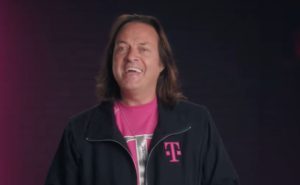
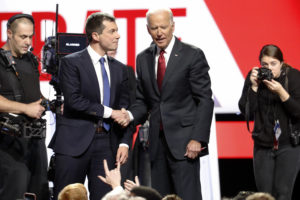
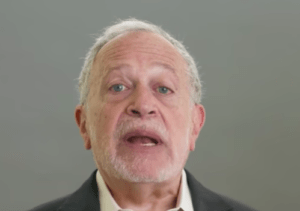
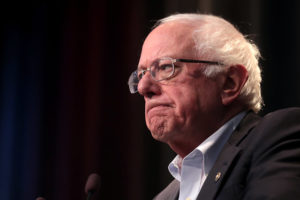

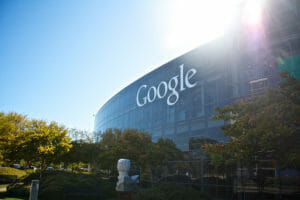
You need to be a supporter to comment.
There are currently no responses to this article.
Be the first to respond.